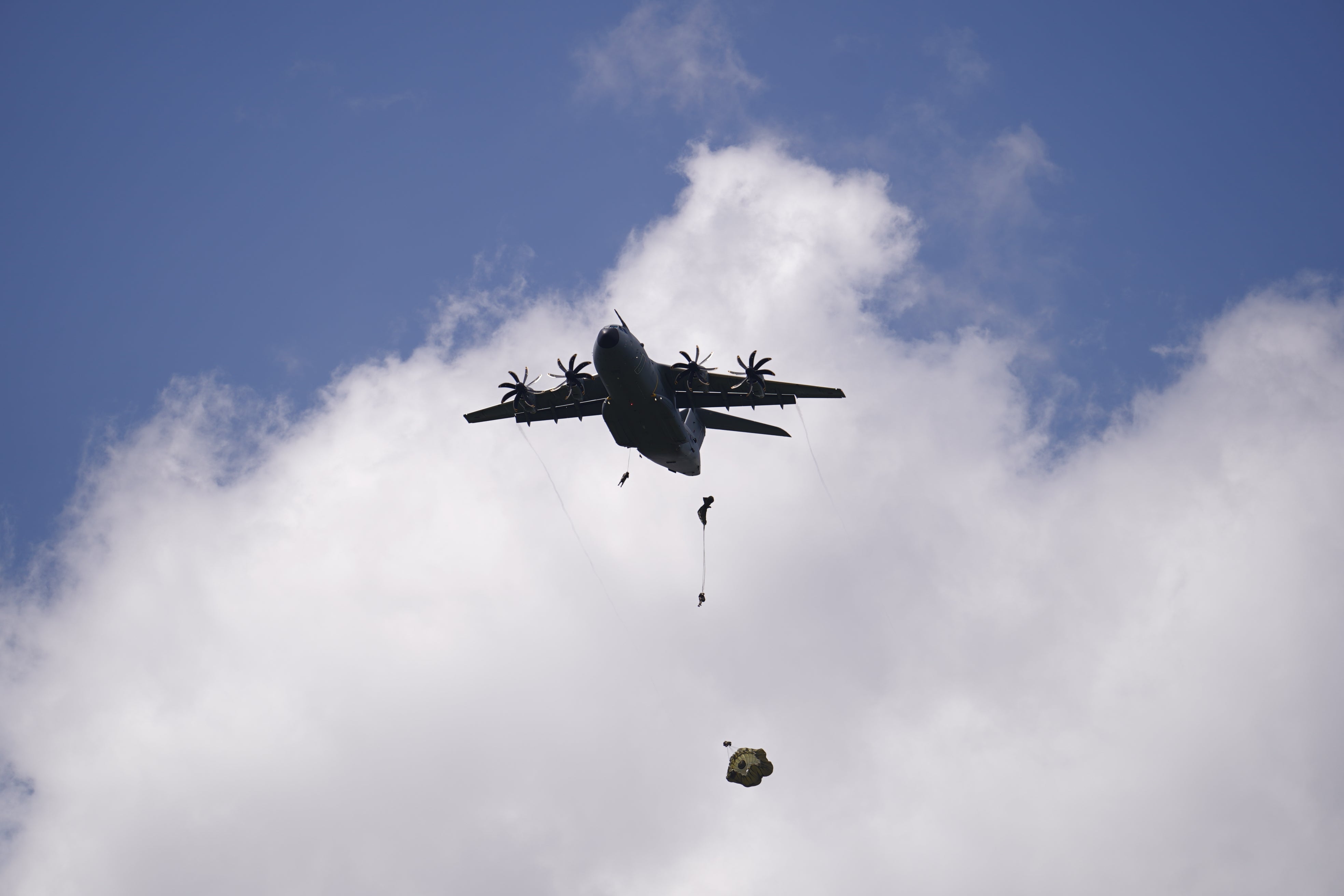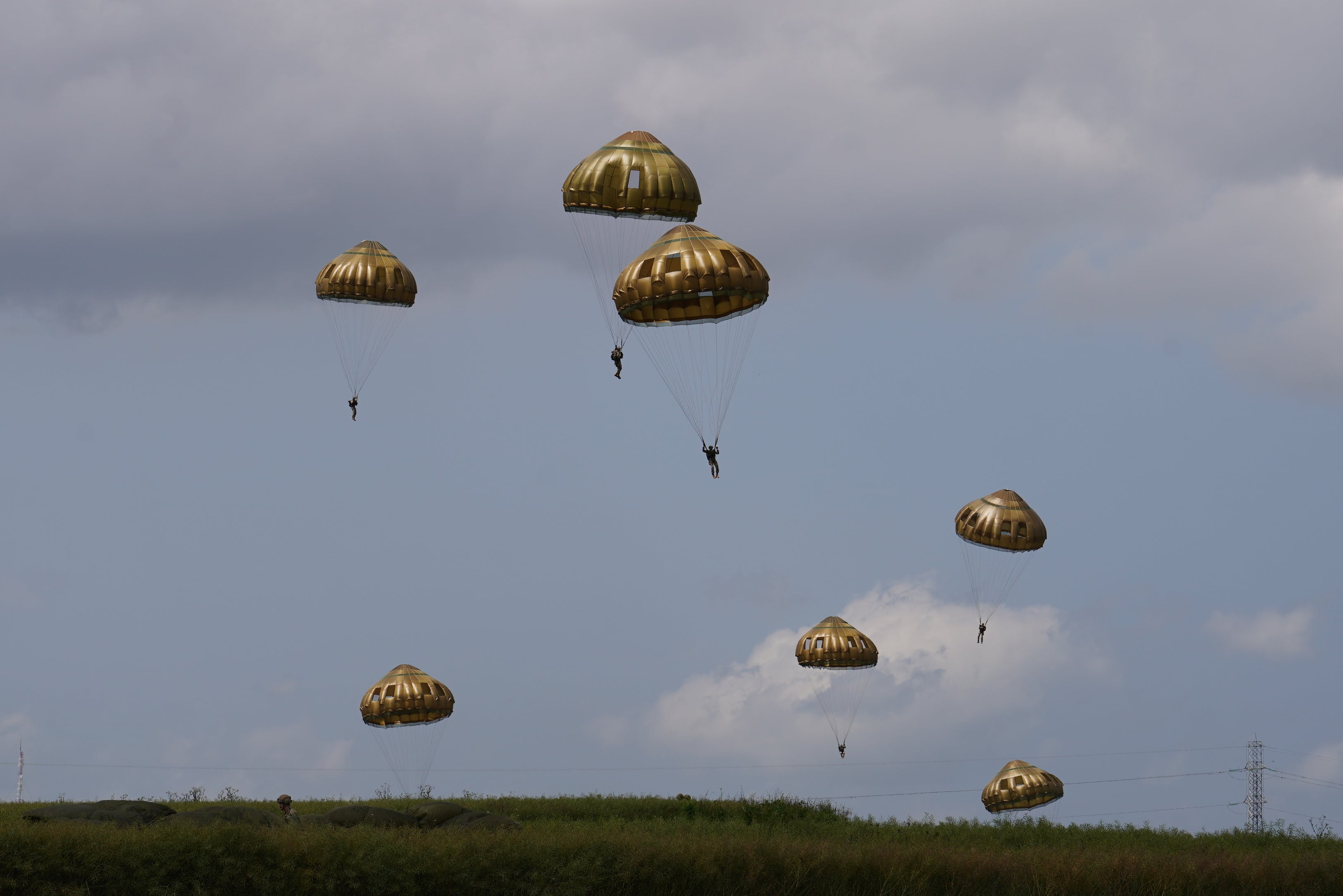British paratroopers had to get passports checked after D-Day event jump into France
More than 300 troops parachuted into the same rural drop zone which was used on D-Day 80 years ago in Sannerville, Normandy
Your support helps us to tell the story
From reproductive rights to climate change to Big Tech, The Independent is on the ground when the story is developing. Whether it's investigating the financials of Elon Musk's pro-Trump PAC or producing our latest documentary, 'The A Word', which shines a light on the American women fighting for reproductive rights, we know how important it is to parse out the facts from the messaging.
At such a critical moment in US history, we need reporters on the ground. Your donation allows us to keep sending journalists to speak to both sides of the story.
The Independent is trusted by Americans across the entire political spectrum. And unlike many other quality news outlets, we choose not to lock Americans out of our reporting and analysis with paywalls. We believe quality journalism should be available to everyone, paid for by those who can afford it.
Your support makes all the difference.British paratroopers were made to show their passports after parachuting into France ahead of D-Day commemorations.
Hundreds of soldiers parachuted into the same rural drop zone which was used on D-Day 80 years ago in Sannerville, Normandy, on Wednesday.
More than 300 troops jumped into the field, including parachutists from Belgium and the US. As they landed, they were met by a makeshift customs desk and asked to produce their travel documents by French immigration officials.
Crowds also went to watch the jump and the troops were applauded after landing.

Brigadier Mark Berry, the commander of 16 Air Assault Brigade, told The Sun: “It is something we haven’t experienced before.
“But given the Royal welcome we have had from every other feature, it seems like a very small price to pay for coming to France.”
US soldiers also had to go through the checks when landing, but Belgian troops bypassed checks because they are EU citizens.
Jonathan Monti, a French immigration official, said the drop-zone post was set up to “welcome UK soldiers”.
He told The Sun: “We are doing immigration control and we are not supposed to do it in a field. But for this special event, for the 80th anniversary, we are welcoming the UK soldiers.”

The British paratroopers jumped out of three A400M military aircraft, mirroring the airdrop made eight decades earlier out of RAF Dakota aircraft. Military aircraft from the United States and Belgium followed in formation.
Captain Maik Biggs was among 250 soldiers from the Army’s 16 Air Assault Brigade who landed on fields near Sannerville in Normandy on Wednesday, which was the designated drop zone K on 6 June 1944.
Mr Biggs, who organised joint training between the two nations’ paratroopers, said Wednesday’s jump was “easy” compared with D-Day because it was sunny.
He added: “It was an honour and a privilege to replicate the men of 80 years ago who did that for real at night.”

Early on June 6, 1944, thousands of Allied airborne forces parachuted into drop zones along the Normandy coast. Ground troops then landed along five assault beaches.
The paratroopers landed behind German lines, tasked with disrupting German defences, capturing strategic bridges and establishing defensive positions.
No known D-Day veterans from the British Army’s 6th Airborne Division have travelled to Normandy, the Ministry of Defence said.

Join our commenting forum
Join thought-provoking conversations, follow other Independent readers and see their replies
Comments